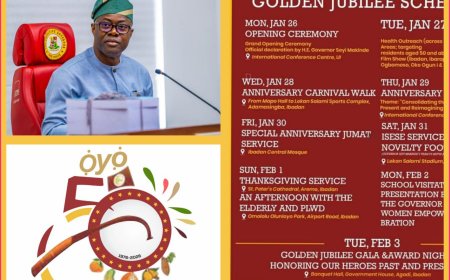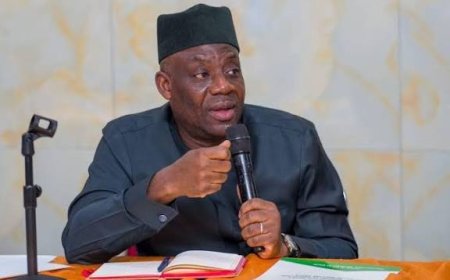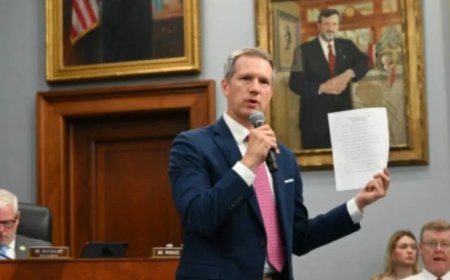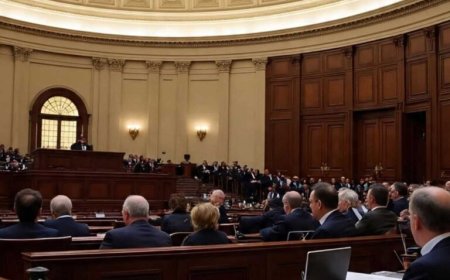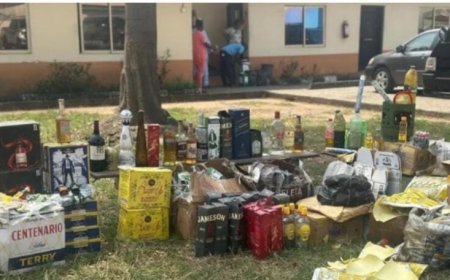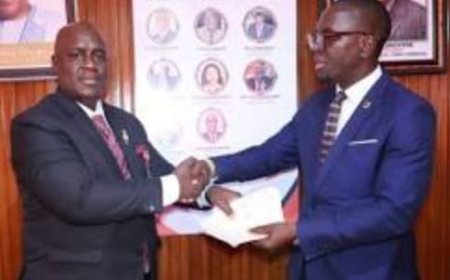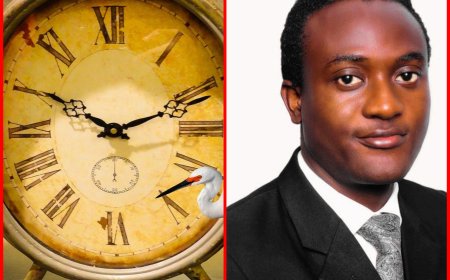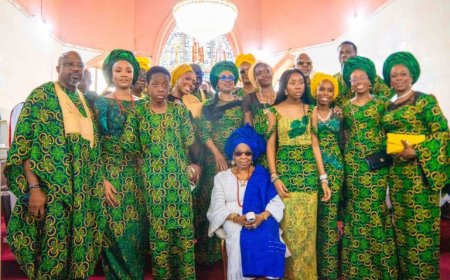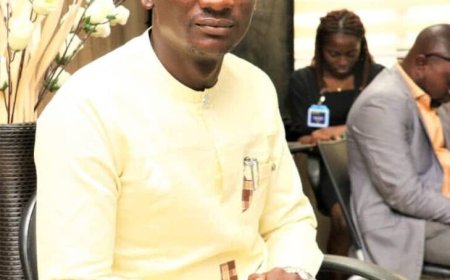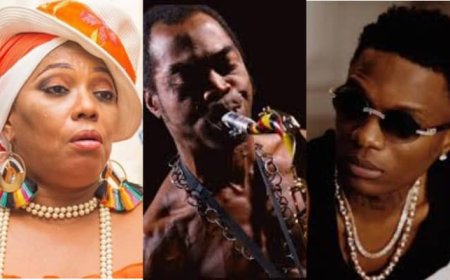Nigeria is 65: Shall We Still Salute the Nation?
In this independent opinion article, Lagos-based veteran journalist, Olawale Olaleye reflects on the theme of Nigeria's 25th independence anniversary theme song, pointing out contemporary realities of Nigeria's trajectories as they relate to weather Nigerians should still 'Salute the Nation' as the country marks her 65th Independence anniversary.

By: Olawale Olaleye
Forty years ago, when Nigeria turned 25 years as an independent nation, the country of my birth, in spite of its development inadequacies, was a pride to many of us, even as children. The age of innocence had not been defiantly and brazenly defiled.
I recall with nostalgia our shared love as a people. The great neighbourliness we had. The contentment of the average home. The safety and security of the environment, albeit primitive. The tough but less inclement economic weather. After all, the middle class still had its place uneroded.
What about the sanity in our places of worship? The devotion of our many great institutions of learning to raising future leaders. The evident unity amongst us, tribe or tongue regardless. Nigeria was beautiful.
Maybe the late novelist and poet, Chinua Achebe, was right. There was a country. How all of these things and more were lost in 40 years without any leadership remorse and/or the rethinking of the people remains a mirage. It has only taken 30 years to change the Dubai story. Today, it’s an irresistible destination. The difference is in leadership.
Elder Bongos Ikwue’s theme song on Nigeria’s 25th independence anniversary summed it all up. The inherent message was not sheer coincidence. It was then our truth and reality as a people. Perhaps the universe inspired that song.
With fond memories and reminiscences, I recall how we’d rush to the network news to learn the song, memorise it, and sing along each time it was aired on the station. Nigeria, with unity of purpose, was our pride.
For this one time, you may reflect on the lyrics of the 25th independence anniversary theme song if you can’t sing along its rhythmic beauty.
“Nigeria is 25. The odds we did survive. Arise, salute the nation, come join the celebration.
The people united will never fall.
“The sun will shine, and the rain will fall, on our land, vast and mighty; richly blessed by the almighty.
“Like bees in the hive, they work so hard to make the honey flow. But not without the use of the hoe.
“Arise, salute the nation, come join the celebration. Nigeria is 25, Nigeria is 25.”
I came across a remake of the song, and it did great injustice to its awesome and pristine quintessence. It hurts the memories instead. Maybe just a snicker for the efforts.
We lived in a country where we could tell the number of persons and families who lived in almost every house on our various streets. Igbo, Hausa, and Yoruba – we knew ourselves and lived in harmony, despite our religious preferences.
I knew a family that lived in a house where the tenants included Christians of the various denominations, Muslims, and traditionalists in the same building.
What many didn’t know then was that such communal living enhanced our collective security as a people. Since we knew one another, it was difficult for strangers to harm any of us.
We lived in a country where our parents didn’t bother, even though we were children, which of our friends’ houses we were going to play and eat. There was no phone and very limited means of communication. Only neighbours who saw you when leaving your house could tell, albeit vaguely, of your movements until the message got to you.
The “legends”, as some of us were known, would always leave home early in the day and return later in the evening, most likely had lunch where our parents did not know. Yet, no one planned to hurt us. Instead, they looked after us and looked out for us.
We used to live in a country where our parents would go to thank neighbours for disciplining us after a misbehaviour was reported. Our innocent world was such that at the mention of the names of our teachers, some of us would pee in our underwear.
But, today, siblings wrestle with each other for daring to correct their children, let alone neighbours. Parents go to school to beat up and sometimes arrest teachers for laying their “filthy” hands on their “precious” wards or children when corrected. Everything that kept us together and made us who we are today suddenly became an abomination.
Who dares to allow a five, six, or seven-year-old out of the house now to a street he does not know who lives next door? Yet, the streets, back in the day, taught us as much as the schools and places of worship did.
At a time in Nigeria, people delighted in traveling by road to all the states of the federation. This was without fear of attacks because it was fun to do so.
Students of various higher institutions traversed the length and breadth of this country without blinking, basking in the euphoria of unionism and fraternity (not the violent type).
Lovers of football had intimate friends in other parts of Nigeria and would travel to go and play or watch a game of football. Remember the all-stars? Many of them had since maintained the friendship cemented by the Nigeria of old but which the new Nigeria is trying hard to balkanise.
Today, innocent and harmless commuters are attacked randomly without genuine excuses but based on silly suspicions, and several lives would be cut short without batting an eyelid. The new humanity is bestiality.
Thankfully, I had traveled to all the 36 states of the federation as a budding reporter before the national insanity escalated. Yet, I’m sad that my children may never savour the same privileges of knowing their country.
Isn’t it sad, therefore, that in 40 years, Nigeria had experienced two extremes of plenty and insufficiency and of good and bad – worse than she did at independence.
In other words, the more things change, the more they stay the same. It’s been a gradual deterioration of everything – chief of which is our value system.
When you listen to that timeless 1966 song by Dr. Victor Abimbola Olaiya – six years after independence – “Ilu le o, ko s’owo lo’de” (the economy is tough, there’s no money anywhere) with serious meditation and introspection, you’d come to the conclusion that the nation’s economic challenges are more or less inherent with patented taste for poverty and highbinders as leaders.
However, while some of us continue to seek solace in the lyrics of that beautiful 25th independence anniversary theme song by Sir Ikwue, are those words still true to our reality today as a people?
Think about it.
Happy 65th independence anniversary, Africa’s giant.
Olawale Olaleye, a veteran political journalist with a demonstrated history of working in THISDAY newspapers for 21 years, writes from Lagos, Nigeria.
What's Your Reaction?











